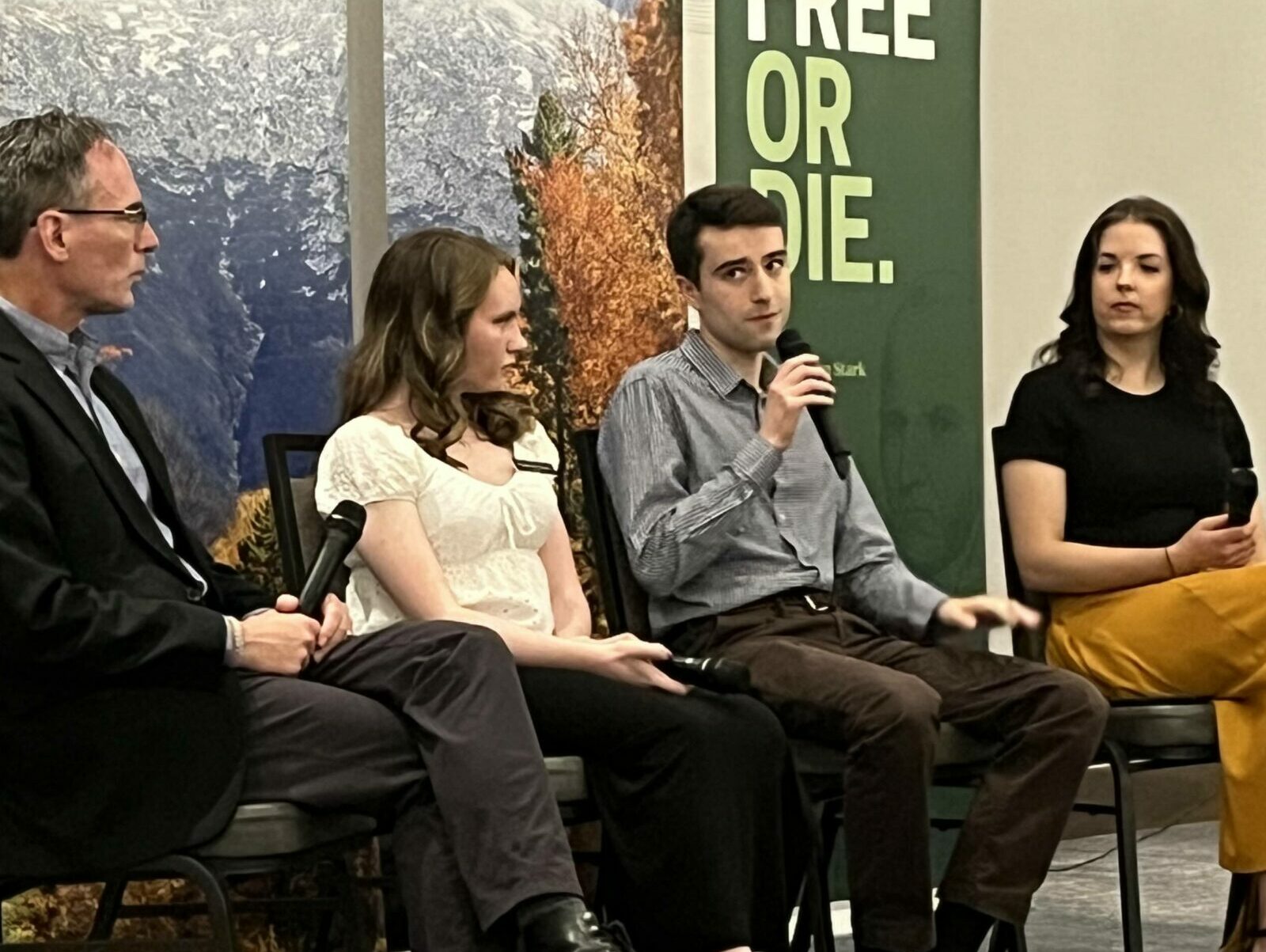Average per-pupil spending in New Hampshire district public schools has nearly doubled this century, as student enrollment declined sharply and reading and math assessment scores fell. That’s the finding from a new Josiah Bartlett Center for Public Policy study released Wednesday.
Adjusted for inflation, total public school district spending increased by $1.25 billion, or 45 percent, between 2001 and 2024.
Over that same period, enrollment plunged by 54,381 students, or 26 percent.

And, the Barlett Center notes, the news isn’t good for parents and taxpayers hoping the surge in spending had a similar impact on test scores.
“As total spending rose by 45 percent and staffing increased significantly, New Hampshire’s National Assessment of Educational Progress (NAEP) reading and math scores fell by a total of 21 points. Nationally, scores fell by 7 points, which means that New Hampshire fell behind relative to other states despite a massive increase in spending,” according to the report.
These trends were the topic of a recent forum hosted by Americans for Prosperity-New Hampshire and Ed Choice, the Milton Friedman-founded education reform organization.
“What we want to see is a market in education that functions more like markets,” said Josiah Bartlett Center President Drew Cline.
The discussion was held a day after Democrats and Republicans serving on the legislature’s House Finance Committee locked horns over eliminating income caps for participation in the state’s Education Freedom Account program. Republicans, who oppose the cap, prevailed.
Two legislators from Salem — state Reps. Joe Sweeney and Valerie McDonnell — also spoke at the forum.
“Public schools are going to continue to work in New Hampshire the way they were designed to, but we’re making sure that the actual students who need the education, who don’t fall into that traditional public school mindset, can get the education they need,” Sweeney said. “Because, again, I’m from the government, and I’m here to tell you, we don’t have all the answers, and we’re never going to have all the answers.”
McDonnell is currently the lead sponsor of legislation in the House to offer universal access to the EFA program. Currently, only families earning up to 350 percent of the federal poverty level ($109,200 for a family of four) are eligible to participate. EFAs currently provide families with an average of $4,600 per child that can be spent on the education of their choice. Participants are required to sign an agreement to share academic accountability documents.
“When I learned that it was limited to low-income students, I said to myself, ‘that’s not fair,’” McDonnell told the forum. “It should not be up to the parents’ income, or where the parents live. How is that any fault of the student? This should be available to everyone.”

Cline used local supermarket chains as a comparison.
“So if you think of your traditional public school, you are assigned by the government to a district,” he said. “If you live in that district, you are then assigned to a specific school in that district.
“That’s it. The government picks your school.”
Cline proposed that if the same system were applied to grocery stores, there would be mass revolts.
“What we want to see is a marketplace where the district line does not dictate where you go,” Cline added. “And the benefit of the EFA program is that it gives you lots and lots of other options. So it breaks us out of that mold that the only way to receive an education is in a public school classroom.”
Ed Tarnowski, EdChoice’s policy and advocacy director, joked that Cline “took the words right out of my mouth.”
“We love our public schools, and I’m also proud of public schools,” he said. “But the idea is, it shouldn’t be dictated.”
Sarah Scott, AFP-NH’s deputy state director, said one of the most repeated misconceptions she’s heard against expanding EFA eligibility is that it will lead to a “mass exodus of students” and “bankrupt public schools.”
McDonnell added, “If you listen to the opponents long enough, they do contradict themselves.”
“They (EFA opponents) don’t even argue that anymore,” Cline pointed out. “The government tells you what school to go to, and they assign you to school, and they put you in the school, and that’s how education is done.
“No, it doesn’t have to be this way.”
Shalimar Encarnacion, a mother of three from Manchester, realized public school wasn’t working in the best interest of her children. Her push for school choice in her own life led her to become an outreach coordinator for the Children’s Scholarship Fund of New Hampshire.
Encarnacion said she was speaking as a parent, not a politician.
“One of the most important things is to find a balance,” she said, noting that class sizes, sports offerings, and even different school cultures play a role in finding the choice that worked for her children.
“As a mom, what was important to me — and all parents, really — is to be able to have the opportunity to know what’s the right fit for their child and to be able to choose right,” Encarnacion said. “I’m grateful for that opportunity.”





